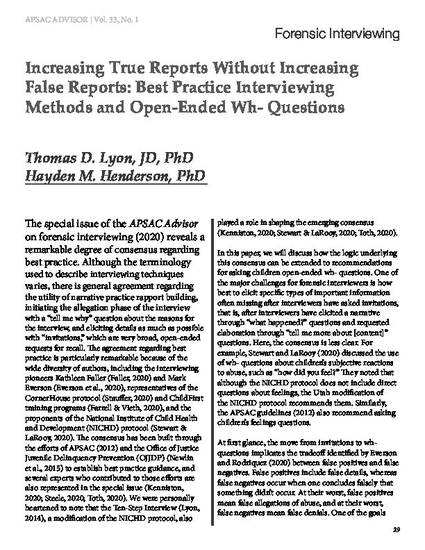
Article
82. Increasing true reports without increasing false reports: Best practice interviewing methods and open-ended wh- questions.
American Professional Society on the Abuse of Children Advisor
(2021)
Abstract
A consensus has emerged among forensic interviewers that narrative practice rapport building, introducing the allegation with a “why” question about the reason for the interview, and eliciting allegation details with invitations (broad free recall questions) constitute best practice. These methods are favored because they increase true reports with little risk of increasing false reports. We discuss how interviewers can maintain this balance with open-ended wh- questions designed to elicit details often missing from children’s narratives. Conversely, we show that recognition questions (including yes/no and forced-choice questions) pose risks of impairing children’s productivity and accuracy, and discuss how future research can find ways of replacing recognition questions with open-ended wh- questions.
Keywords
- true reports,
- false reports,
- interviewing methods,
- wh- questions,
- child abuse,
- child sexual abuse,
- child witness,
- child testimony,
- child neglect
Disciplines
Publication Date
Winter January 4, 2021
Citation Information
Lyon, T.D., & Henderson, H.M. (2021). Increasing true reports without increasing false reports: Best practice interviewing methods and open-ended wh- questions. American Professional Society on the Abuse of Children Advisor, 33(1), 29-39.
